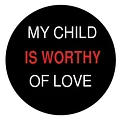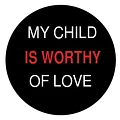The Inconvenient Truth about Reconciliation and Reconnecting
How do we get there, what are the do's and don'ts, and how to start mending those fences

Today I want to talk about something that's been weighing heavy on my heart. I know there are a lot of gender critical parents out there who are estranged from their kids over trans issues. Maybe you've found yourself deep in the gender-critical rabbit hole, and now your trans child, and maybe even some of your family, wants nothing to do with you. You're hurt, confused, and wondering if there's any way to fix this. Well, I'm here to tell you that there is hope, but it ain't gonna be easy.
First off, let's get one thing straight. Reconciliation isn't about proving who's right or wrong. It's not about winning an argument or justifying your beliefs. It's about understanding, empathy, and taking responsibility. And that can be a bitter pill to swallow, especially when you're being asked to question views that you hold dear.
But here's the thing. If you want to heal this rift, you've got to be willing to listen. And I mean really listen, not just wait for your turn to talk. Try to see things from your child's perspective. Imagine what it would be like to know that people only see the you that you see in the mirror, and not who you truly are deep down inside. Imagine that as time goes on, you grow to hate that reflection, because that reflection dictates how everyone treats you, right or wrong, and places unspoken expectations and a future that you you do not want. Now imagine how it feels to finally have the courage to be vulnerable to you, to share that very core part of who and what you are, only to have your very identity dismissed or attacked by the people who are supposed to love you unconditionally1. That's a deep hurt, and it's going to take more than a few "I'm sorry"s to fix it.
So, what can you do? First, show some empathy. Acknowledge your child's pain and experiences. Don't try to minimize or explain it away. Second, take responsibility for your role in this rift. Own up to the hurtful things you've said or done, without trying to justify them. Third, respect your child's boundaries. If they need space, give it to them. Let them set the pace for reconciliation.
Now, here's what you shouldn't do. Don't get defensive. Don't try to prove that you're right and they're wrong. Don't dismiss your child's identity as a phase or a delusion. And don't expect things to go back to "normal" overnight. This is going to be a journey, and it's going to take time. As the old adage goes “Trust arrives on foot, but leaves by horse.” Understand that this is a process.
If you're serious about mending these fences, you've got to be proactive. Reach out to your child, but do it with humility and an open heart. Educate yourself about trans identities and experiences. Read books, watch videos, talk to other parents who've been through this2. And most importantly, be willing to change. It should go without saying that you probably shouldn’t go back to the sources of information and online communities you have used to educate yourself thus far, because that obviously did not work out so great. Be willing to let go of the beliefs that have caused you and your child so much pain. Maybe invite your child to a support group for families3, make an effort to include them, because right now, your words must be backed up by your actions.
I know this isn't easy. Believe me, I've been there. Trust me folks, you can’t dig yourself out of the hole you find yourself in. Doubling down will only make the gap a crevasse. It is hard to let go of many things we wanted to believe in, that we had hoped for so much that it hurts. It’s hard. But we can’t climb out of the pit without letting go of that weight and grasping the rungs of understanding and love. It is going to be really hard, but I also know that it's worth it. Because at the end of the day, your relationship with your child is more important than being right. It's more important than holding onto an ideology, no matter how strongly you believe in it. To put it another way, what is worth the cost of your relationship with your kid?
And let me share a bit of insight I have gained about this. Many folks have shared with me that their relationships with their parents improved over time, often after a period of estrangement. The primary factor that contributed to their reconciliation was that their parents became more educated about LGBT issues, and recognizing that their child’s life is a happy and successful one, and that their fears, while valid, did not prove to be what reality reflected. I hope that this gives you some hope.
So, to all the parents out there who are struggling with this, I see you. I hear you. And I'm rooting for you. Don't give up on your kid. Don't give up on the possibility of reconciliation. It's going to take work, and it's going to be uncomfortable at times. But if you approach it with love, humility, and an open mind, I believe that healing is possible.
Thanks for reading, folks. Take care of yourself and each other.
Katz-Wise, S. L., Rosario, M., & Tsappis, M. (2016). Lesbian, gay, bisexual, and transgender youth and family acceptance. Pediatric Clinics of North America, 63(6), 1011-1025. https://doi.org/10.1016/j.pcl.2016.07.005 ↩
PFLAG. (2021). Our Trans Loved Ones. PFLAG National. https://pflag.org/resource/our-trans-loved-ones/ ↩
Gender Spectrum. (2021). Groups for Parents and Other Adult Family Members. Gender Spectrum. https://www.genderspectrum.org/support-groups ↩


